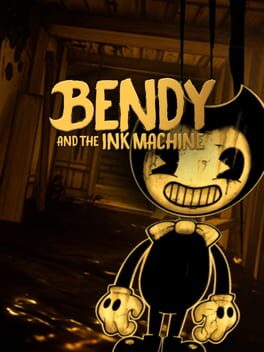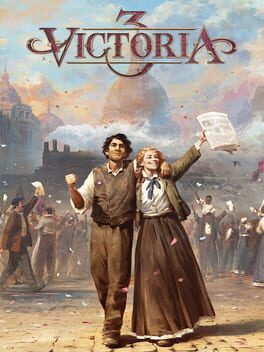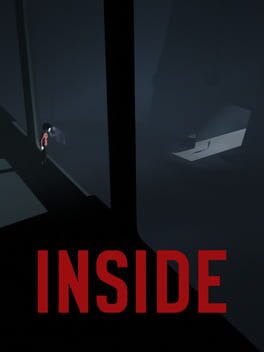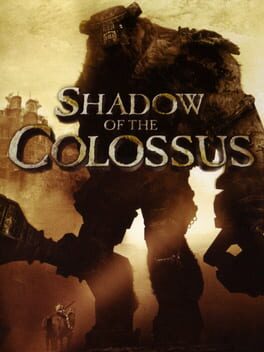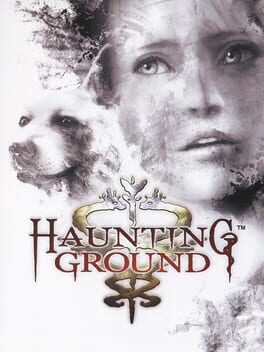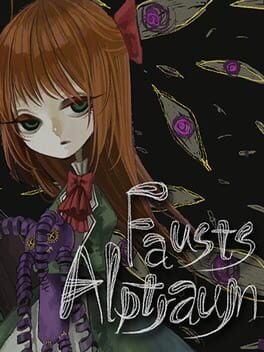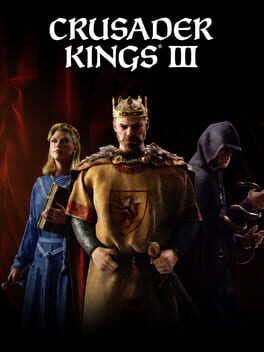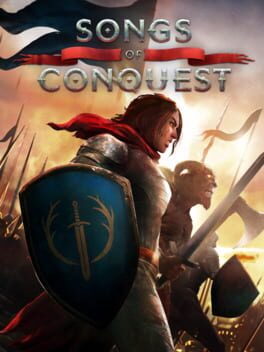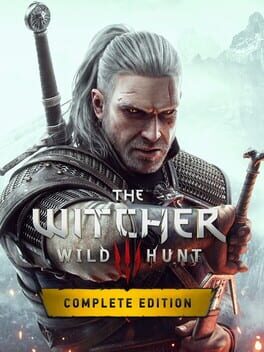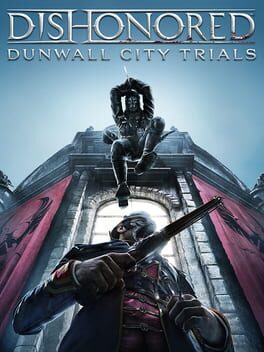2022
Hauntingly beautiful, a quasi-metaphorical descent into a hell of gears, flesh and madness. Visually relentless, brutal and visceral, mechanically tight and curiousity-driven, and narratively densly impenetrable yet touchingly human, Signalis wears its inspirations like a badge of honour and showcases the best that each of its genres has achieved in recent decades.
2019
2022
2016
2005
2017
RPGmaker horror games seems capable of telling only one kind of story so it always boils down to which one does it with the better characters and subtlety.
Fausts Alptraum isn't as visually creative and striking as Hello Charlotte or OFF but it also isn't as trite shite as Coffin of Ashes, so I'd say we strike a neat balance and get a familiar but heartfelt goth spin to Goethe's magnus opus.
I also appreciate that, while still using loads of madman logic for certain puzzle and way too much backtracking, the gameplay tried to be interesting and really tested what could be achieved with the engine.
Fausts Alptraum isn't as visually creative and striking as Hello Charlotte or OFF but it also isn't as trite shite as Coffin of Ashes, so I'd say we strike a neat balance and get a familiar but heartfelt goth spin to Goethe's magnus opus.
I also appreciate that, while still using loads of madman logic for certain puzzle and way too much backtracking, the gameplay tried to be interesting and really tested what could be achieved with the engine.
2020
2022
Solid groundwork for a fantasy turn-based strategy game that hopefully will see more content being added in the future.
The gameplay is very quick and intuitive to pick up, experimentation with the magic and essence system is incentivised while managing armies and towns is relatively easy to balance, so it never feels like you are playing wrong.
The pixel art is simply stunning, colorful, detailed, rich and vibrant, it's just pure joy to look and units and building idling their animations.
There are also campaigns to add a narrative to the game but it is very barebone and not much interesting. It plays a lot like Thronebreaker for example, where you ran your character and their army across the map to collect stuff and clear events until you unlock the following chapter and start over again. It's as engaging as it needs to be, doesn't overcome its welcome and leaves plenty of room to just play the game.
The gameplay is very quick and intuitive to pick up, experimentation with the magic and essence system is incentivised while managing armies and towns is relatively easy to balance, so it never feels like you are playing wrong.
The pixel art is simply stunning, colorful, detailed, rich and vibrant, it's just pure joy to look and units and building idling their animations.
There are also campaigns to add a narrative to the game but it is very barebone and not much interesting. It plays a lot like Thronebreaker for example, where you ran your character and their army across the map to collect stuff and clear events until you unlock the following chapter and start over again. It's as engaging as it needs to be, doesn't overcome its welcome and leaves plenty of room to just play the game.
After some tens of hours spent traveling around in a visually stunning world, helping believable and humanlike characters, witnessing some pretty touching moments and feeling the indisputable humanity that this medieval setting had to offer, it came to me: I don’t really care about Ciri and how she’s doing, can we just skip all of that?
The Witcher 3: Wild Hunt might be the best role-playing video game I’ve ever played, even if not my favourite. The sheer amount of care put into any detail from facial expressions, to the environments, to the absurd quality of the prose compared to the average video game, all these features contribute to outline a rich, deep world. For once you are not swarmed with boring fantasy jargon about dynasties, races, species, monsters, religions, locations and other amenities you usually put into an encyclopaedia, making you feel like you are studying rather than playing a game. Granted, I appreciate when some thought is put into the lore, but there is a difference between useful data about society and customs and having to read all about legends and myths that are never directly involved with the plot. I do like my Dragon Age Origins, but I certainly preferred talking to my companions rather than study about Andraste, and she was by far the best part of the lore.
So, back to The Witcher 3, you are spared any of these additional studies, except from some notions about the characters you are talking to if you, like me, are not a fan of the book series or the previous games, and the monsters you have to slain to gather oils and equipment and decide the better strategies. The online paper Rock, Paper, Shotgun once wrote a very nice article I’d recommend about The Witcher 3 being a ‘folklore RPG’ rather than a ‘fantasy RPG’, a definition I very much agree upon. One particular line perfectly expresses what I like about CDPR2 approach to video gaming above their competitors: “The important thing, first of all, is to weave anything new into an existing structure of beliefs, to make it part of a wider set of knowledge so that it can inform and be informed by its neighbours”, which means we are not explained how the world works so that we receive a general dumping of information to make us feel familiar with the setting. We witness particular events and put them into context, so that we draw our conclusion about the plot and the characters dealing with them, rather than the world as a whole. This way the game speaks directly to the players themselves, as it makes them approach a world which by no means requires explanation (it’s your usual feudal medieval fantasy setting after all) but lets you catch on the minutiae of its inhabitants through events, rather than alienating the audience by forcing them to study literary sources. There are still lore books here and there, rather short and pleasant to read I’d say, but they are not necessary anymore: I could understand what the deal was with the witch hunting in Novigrad just by speaking to other people, and reading a book added nothing substantial to my knowledge.
Moreover, it’s not like the plot is anything so complicated to understand: there is a girl in danger, go save her, she’s not in the location you are going but hey, travel to the next map and they have more intel on her. Standard fare, and as I said in the first paragraph I was plainly uninterested with the whole Ciri, Wild Hunt, elder blood stuff. The side quests are by far the juice of the game, not a checklist of issues to solve and herbs to collect but stories themselves, with protagonists, emotions and the feeling you are doing something significant. Never once I was having the dread of traveling aimlessly through the map just to get to the next collectible, since even in the location of a useless, third rate treasure chest I found something that testified the care put into crafting more stories inside the stories. No other open world game can boast this achievement to me.
As for the music, the soundtrack is amazing, not much to say about it. CDPR2 are gods among developers for all the nice extras you get for free buying the game and the OST was definitely the favourite thing I got from it. The battle tracks were atmospheric, powerful and rhythmic, the ballads played in cities and pubs are quirky and catchy, the vocals gave you a dreamlike feeling of old northern music. I can’t use enough nice words to express how beautiful the musical score is.
Regarding the gameplay, it’s nice but it never really shined to me. I liked a lot using oils and signs, changing to different builds to experiment what Geralt was capable of, but as for the combat the character often moved weirdly and unresponsive to inputs (I groaned every time I moved the stick to turn around and he took the whole effort to do the full movement instead of just bloody turning), locking enemies was broken as half of the times it highlighted the wrong enemy, and even on Death march the game quickly gets bloody easy if you get the dodge timing right. I don’t like hard games, mind you, I quitted Nioh in rage because I was tired of the checkpoint system and how unforgiving the fights were even against mobs, but surely it didn’t take me much before I lost all interest in the gameplay part of the Witcher 3 and instead focused entirely on its narrative.
After the completion of the main quest though, the greatness of the Witcher 3 didn’t cease: Hearts of Stone and Blood and Wine might have worked perfectly as stand-alone games, as they have the same, if not better, insight for characters and plotting than the main game has but their main storylines are by far more compelling.
Hearts of Stone was an intelligent take on the Faust myth with the two most intriguing characters of the whole game: conflicted, mysterious, complex, quirky and surprising as they were, I still have in mind the final moment of the expansion and how in awe I was for all the quality the script showed and how satisfying the payoff was.
Blood and Wine starts, without spoiling much, as a ‘standard’ murder mystery and it quickly gets weird and more thrilling than just your average crime investigation. It also helps that Touissant is a majestic environment, probably my favourite map in the game: colourful, huge, filled with spectacular landscapes and the jewel that the city of Beauclair is. I could never bring myself to run inside the city, I had to walk at a slow pace to admire every crook and cranny.
They say it’s not about the destination but the journey, and I’ll certainly never forget the experience I had traveling the wonderful, thrilling, humorous, dramatic journey that the Witcher 3 was.
The Witcher 3: Wild Hunt might be the best role-playing video game I’ve ever played, even if not my favourite. The sheer amount of care put into any detail from facial expressions, to the environments, to the absurd quality of the prose compared to the average video game, all these features contribute to outline a rich, deep world. For once you are not swarmed with boring fantasy jargon about dynasties, races, species, monsters, religions, locations and other amenities you usually put into an encyclopaedia, making you feel like you are studying rather than playing a game. Granted, I appreciate when some thought is put into the lore, but there is a difference between useful data about society and customs and having to read all about legends and myths that are never directly involved with the plot. I do like my Dragon Age Origins, but I certainly preferred talking to my companions rather than study about Andraste, and she was by far the best part of the lore.
So, back to The Witcher 3, you are spared any of these additional studies, except from some notions about the characters you are talking to if you, like me, are not a fan of the book series or the previous games, and the monsters you have to slain to gather oils and equipment and decide the better strategies. The online paper Rock, Paper, Shotgun once wrote a very nice article I’d recommend about The Witcher 3 being a ‘folklore RPG’ rather than a ‘fantasy RPG’, a definition I very much agree upon. One particular line perfectly expresses what I like about CDPR2 approach to video gaming above their competitors: “The important thing, first of all, is to weave anything new into an existing structure of beliefs, to make it part of a wider set of knowledge so that it can inform and be informed by its neighbours”, which means we are not explained how the world works so that we receive a general dumping of information to make us feel familiar with the setting. We witness particular events and put them into context, so that we draw our conclusion about the plot and the characters dealing with them, rather than the world as a whole. This way the game speaks directly to the players themselves, as it makes them approach a world which by no means requires explanation (it’s your usual feudal medieval fantasy setting after all) but lets you catch on the minutiae of its inhabitants through events, rather than alienating the audience by forcing them to study literary sources. There are still lore books here and there, rather short and pleasant to read I’d say, but they are not necessary anymore: I could understand what the deal was with the witch hunting in Novigrad just by speaking to other people, and reading a book added nothing substantial to my knowledge.
Moreover, it’s not like the plot is anything so complicated to understand: there is a girl in danger, go save her, she’s not in the location you are going but hey, travel to the next map and they have more intel on her. Standard fare, and as I said in the first paragraph I was plainly uninterested with the whole Ciri, Wild Hunt, elder blood stuff. The side quests are by far the juice of the game, not a checklist of issues to solve and herbs to collect but stories themselves, with protagonists, emotions and the feeling you are doing something significant. Never once I was having the dread of traveling aimlessly through the map just to get to the next collectible, since even in the location of a useless, third rate treasure chest I found something that testified the care put into crafting more stories inside the stories. No other open world game can boast this achievement to me.
As for the music, the soundtrack is amazing, not much to say about it. CDPR2 are gods among developers for all the nice extras you get for free buying the game and the OST was definitely the favourite thing I got from it. The battle tracks were atmospheric, powerful and rhythmic, the ballads played in cities and pubs are quirky and catchy, the vocals gave you a dreamlike feeling of old northern music. I can’t use enough nice words to express how beautiful the musical score is.
Regarding the gameplay, it’s nice but it never really shined to me. I liked a lot using oils and signs, changing to different builds to experiment what Geralt was capable of, but as for the combat the character often moved weirdly and unresponsive to inputs (I groaned every time I moved the stick to turn around and he took the whole effort to do the full movement instead of just bloody turning), locking enemies was broken as half of the times it highlighted the wrong enemy, and even on Death march the game quickly gets bloody easy if you get the dodge timing right. I don’t like hard games, mind you, I quitted Nioh in rage because I was tired of the checkpoint system and how unforgiving the fights were even against mobs, but surely it didn’t take me much before I lost all interest in the gameplay part of the Witcher 3 and instead focused entirely on its narrative.
After the completion of the main quest though, the greatness of the Witcher 3 didn’t cease: Hearts of Stone and Blood and Wine might have worked perfectly as stand-alone games, as they have the same, if not better, insight for characters and plotting than the main game has but their main storylines are by far more compelling.
Hearts of Stone was an intelligent take on the Faust myth with the two most intriguing characters of the whole game: conflicted, mysterious, complex, quirky and surprising as they were, I still have in mind the final moment of the expansion and how in awe I was for all the quality the script showed and how satisfying the payoff was.
Blood and Wine starts, without spoiling much, as a ‘standard’ murder mystery and it quickly gets weird and more thrilling than just your average crime investigation. It also helps that Touissant is a majestic environment, probably my favourite map in the game: colourful, huge, filled with spectacular landscapes and the jewel that the city of Beauclair is. I could never bring myself to run inside the city, I had to walk at a slow pace to admire every crook and cranny.
They say it’s not about the destination but the journey, and I’ll certainly never forget the experience I had traveling the wonderful, thrilling, humorous, dramatic journey that the Witcher 3 was.
Why yes, what I love the most about a story-driven game about open areas and puzzles that can be approached in multiple ways and combining a large arsenal of weapons and techniques that may require lots of planning, is stripping all of that down to two or three mechanics and doing the same thing over and over again, as fast as possible, for points. Genius.

